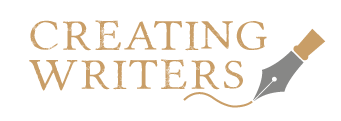OK, you want to write a book, but don’t know where to start. Well, as always, the best place to start is at the beginning.
So, let’s begin with W. Somerset Maugham. “There are three rules for writing the novel. Unfortunately, no one knows what they are.”
Well, I’d say that there are a huge number of rules to writing great literature, but let’s condense those do’s and don’ts into Maugham’s Rule of Three.
Read, read, read…and write
First and foremost, learning to write well is a bit like learning to ride a bike. Okay, you might fall off a few times, but each bump or scrape is part of the learning process.
So, it’s no use thinking that you can simply leap onto your laptop and conjure up a great novel. Like riding a bike, learning to write is a skill you must learn, whatever anybody else tells you.
But as Ernest Hemingway remarked: “It’s none of their business that you have to learn to write. Let them think you were born that way.”
Back before there were creative writing courses, the only way that aspiring authors could learn was by reading the work of other authors. That remains true; books are the best teachers.
As Stephen King says. “If you want to be a writer, you must do two things above all others: read a lot and write a lot.”
Alisa Valdes, the American author, journalist and film producer agrees. “There’s no better teacher for writing than reading…Get a library card. That’s the best investment.”
Reading and writing go hand in hand; if you don’t practice your craft, you’ll never find that authenticity that’s so important for any writer.
Ray Bradbury’s advice is pertinent. “Just write every day of your life. Read intensely. Then see what happens. Most of my friends who are put on that diet have very pleasant careers.”
The important thing is to keep reading, and not just in the genres you most enjoy. Read widely and analyse why you like, or don’t like, a particular book. The dialogue? Its narrative? The characters? Its story?
Skip backwards through the book. Figure out how it’s structured, how the characters develop, how one thing leads to another. In other words, read forensically.
Find that nugget of inspiration
Maybe you’ve already found that kernel of an idea that you think will make a great book. In which case poet Maya Angelou’s observation that “there is no greater agony than bearing an untold story inside you” might ring true. You absolutely want your untold story to be told.
Or maybe you just have the writing itch, but don’t know quite where to start. Don’t worry. “A writer is working when he’s staring out of the window,” as American literary critic Burton Rascoe remarked.
Peter De Vries, the American satirist, makes it sound too easy. “I only write when I’m inspired, so I see to it that I’m inspired every morning at nine o’clock.”
Most of us aren’t quite as organised, so why not listen to Agatha Christie. “The best time to plan a book is while you’re doing the dishes.”
It’s true: inspiration can strike at any time, mostly at very inconvenient times. So, get into the habit of carrying a notebook or some other way of recording your thoughts as they occur to you.
“Sometimes the ideas just come to me. Other times I have to sweat and almost bleed to make ideas come. It’s a mysterious process, but I hope I never find out exactly how it works.” (J.K. Rowling)
And don’t forget that inspiration only comes in bite-sized chunks. No book in the history of writing has ever leapt fully-formed into an author’s mind.
But as Dan Poynter, the author and (strangely) parachute designer, advises, “If you wait for inspiration to write you’re not a writer, you’re a waiter.”
Find that initial nugget, and then the next, and the next….
Work at it, and don’t give up!
Many budding authors think that, once they have their novel all planned out, the actual writing will be easy. If that’s you, prepare to be disappointed.
As Thomas Mann advises: “A writer is a person for whom writing is more difficult than it is for other people.” Joseph Heller agrees. “Every writer I know has trouble writing.”
Ernest Hemingway, the great master of effortless prose, is more forthright. “There is no rule on how to write. Sometimes it comes easily and perfectly: sometimes it’s like drilling rock and then blasting it out with charges.”
The most difficult moment for many writers is opening the computer, staring at the blank screen, and realising that they have many thousands of words to write.
But take encouragement from Stephen King. “The scariest moment is always just before you start. After that, things can only get better.”
Nor be discouraged if your great idea doesn’t seem to fit an easy genre, or the subject-matter is a little wacky or off-the-wall. If you have confidence in your idea, then explore it by getting those words written.
Sylvia Plath, the poet and novelist, said, “Everything in life is writable about if you have the outgoing guts to do it, and the imagination to improvise. The worst enemy to creativity is self-doubt.”
Inspiration and confidence are key ingredients in creating any good book. Getting it down on paper is another matter.
“[As a writer] you have to have the three D’s: drive, discipline and desire. If you’re missing any one of those three, you can have all the talent in the world, but it’s going to be really hard to get anything done.” (Nora Roberts, who has written over 200 novels)
Or as Stephen King puts it, “What separates the talented individual from the successful one is a lot of hard work.”
A good bit of advice is to try to set aside time every day, or at certain times of the week, to devote to reading and writing. “I try to write a certain amount each day, five days a week. A rule sometimes broken is better than no rule.” (Herman Wouk, a Pulitzer Prize winner)
The important thing is to never give up. “A professional writer is an amateur who didn’t quit.” (Richard Bach, best-known as the author of Jonathan Livingston Seagull).
Winston Churchill put it rather more simply. “Never, never, never, never give up.”
Photo by John Jennings on Unsplash

